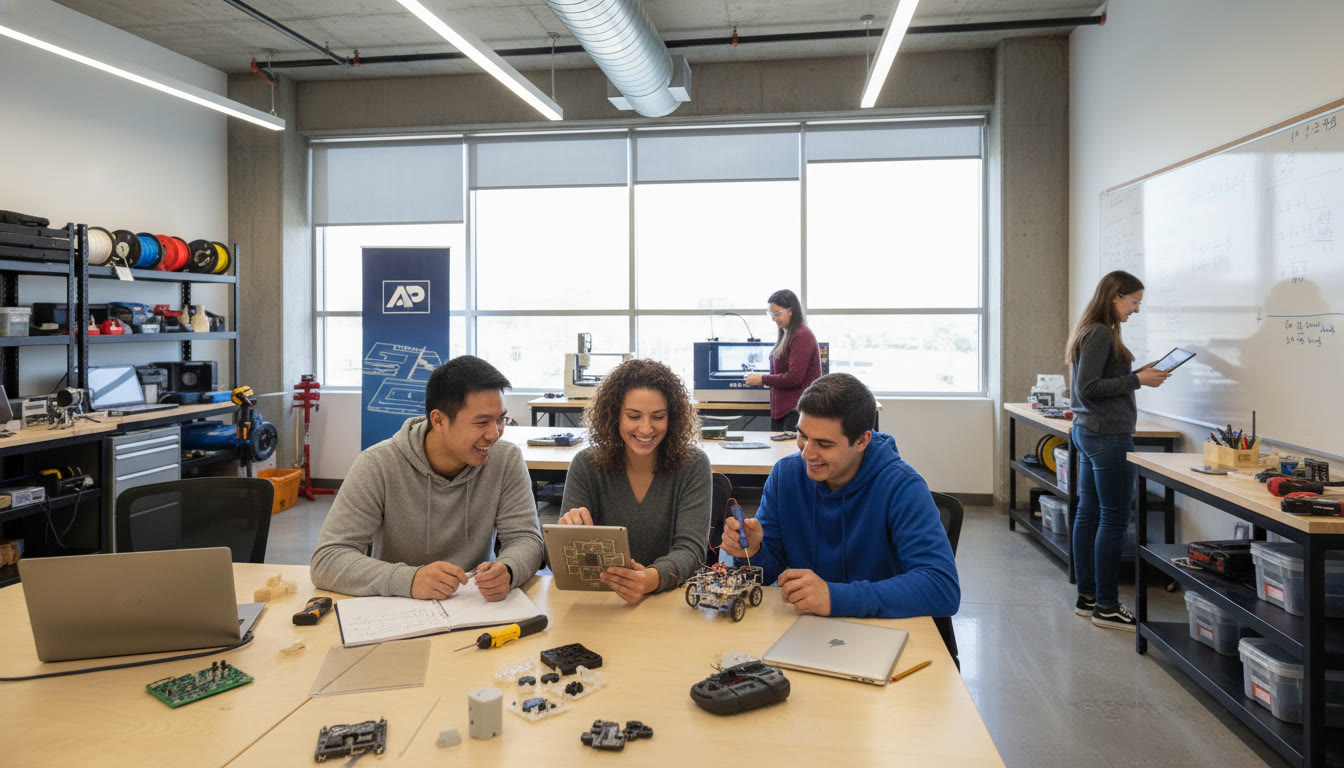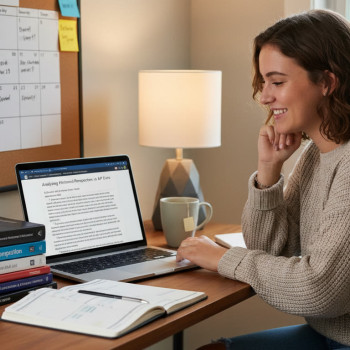Nebraska–Lincoln: AP & Engineering Agendas — Why This Guide Matters
If you or your student are aiming for engineering at the University of Nebraska–Lincoln, AP exams can be a powerful advantage. They can save tuition, open room for a double major or research, and let you jump into upper-level classes sooner. This guide walks you through smart AP course selection, exam strategy, how AP credit and placement typically work, and study methods that actually stick — all written for students and parents who want clear, human advice, not dry checklists.

What AP Credit and Placement Mean — The Big Picture
Before we get tactical, let’s align on terms. “Credit” usually refers to college credit hours earned for a qualifying AP score. “Advanced placement” means you can skip an introductory course and register directly for the next-level class. Both outcomes can reduce time-to-degree and free up your schedule for internships, undergraduate research, or electives.
When planning for engineering at Nebraska–Lincoln (or any big public research university), think of AP as strategic currency — not just prestige. The credits and placements you earn should map to major requirements (like calculus and physics) so you’re not wasting an AP score on unrelated electives.
Practical fact to note
The University of Nebraska–Lincoln recognizes AP for credit and placement; official scores must be submitted to the Office of Admissions for credit to be awarded. That means your AP exam submissions matter — make sure scores are sent on time and that you know which department verifies credit for engineering majors.
Which AP Exams Engineering Students Should Prioritize
If your goal is engineering, not all AP exams are created equal. Choose ones that align directly with first-year engineering coursework. Below are the most impactful APs for aspiring engineers and why they matter.
- Calculus AB / BC — Almost universally the most valuable. Passing these can place you into multi-variable calculus or give you credit for first-year calculus requirements.
- Physics 1 & 2 / Physics C: Mechanics and Electricity & Magnetism — Physics C is calculus-based and most relevant to engineering majors; it often earns more direct placement into engineering introductory courses.
- Chemistry — Especially useful for chemical, materials, or biomedical engineering tracks.
- Computer Science A — Increasingly helpful across many engineering disciplines where programming is part of the first- or second-year curriculum.
- Statistics — Useful for engineering design, data analysis, and some electives.
- English Language and Composition — Communication matters. Strong writing skills help you in lab reports, engineering ethics, and team projects; some programs award general-credit for composition.
Suggested AP roadmap by year
Here’s a practical timeline many students follow. Adapt it to your school’s offerings and your personal workload capacity.
- Sophomore year: AP Calculus AB or Pre-AP precursors; AP Physics 1 if available as an introduction.
- Junior year: AP Calculus BC or AP Calculus AB exam + dual-enrollment credits; Physics C and Chemistry.
- Senior year: CS A or Statistics; retake or take additional APs if you’re aiming for extra credit.
How AP Scores Translate to Engineering Advantage
There’s variability between institutions and departments, but the clearest gains come from AP Calculus and Physics. Below is a sample table mapping common AP scores to typical college outcomes for engineering track courses — treat this as a general reference rather than a one-size-fits-all rule.
| AP Exam | Typical Minimum Score for Credit/Placement | Common College Outcome |
|---|---|---|
| Calculus AB | 3–4 | Credit for Calc I or placement into Calc II |
| Calculus BC | 3+ | Credit for Calc I and II; placement into multivariable calculus |
| Physics C: Mechanics | 3+ | Placement out of intro mechanics course; counts toward major requirement |
| Physics C: E&M | 3+ | Placement for electricity & magnetism course; advanced placement in sequence |
| Chemistry | 3–4 | Credit for general chemistry or placement into higher chemistry lab |
| Computer Science A | 3+ | Credit for intro programming; may waive introductory CS requirement |
Remember: departmental policies matter. If you want a specific credit-to-course mapping for Nebraska–Lincoln engineering majors, contact the college’s admissions or engineering advising office and submit your official scores early so they can evaluate them against degree requirements.
Study Strategies That Actually Work for AP Engineering Exams
Studying for APs is about deliberate practice, not endless hours of passive reading. Here are strategies that deliver high returns—especially for STEM APs where problem-solving and conceptual mastery are key.
1. Build conceptual scaffolding, then drill
Start by building intuitive understanding: why does the derivative measure instantaneous rate, what is the physical meaning of a curl or divergence in E&M? Once the conceptual frame is solid, switch to targeted problem sets. Mix timed practice with untimed deep practice.
2. Learn the exam language
AP questions are precise — learn how they phrase prompts. For physics, understand when an exam expects an idealized model; for calculus, be fluent with the notation used on the exam. That small familiarity reduces careless errors on test day.
3. Use past exam questions as your north star
Past AP free-response questions reveal recurring themes and the depth of explanation expected. Practice with them under timed conditions and then spend time writing model solutions and checking what graders look for.
4. Embrace mixed-practice routines
Instead of doing a single topic for hours, rotate topics (calculus one day, physics the next). This interleaving improves long-term retention and helps you see cross-topic connections — for example, calculus techniques used in physics problems.
How to Structure a Realistic Weekly Plan (Sample)
Below is a compact weekly plan you can customize. It balances content review, practice, and reflection — the three pillars of effective study.
- Monday: Concept review (90 min) + 30-minute problem drill
- Tuesday: Timed practice set (60–90 min) + error log
- Wednesday: Lab/concept application (for physics/chemistry) + flashcard review
- Thursday: Mixed topics practice (90 min) — alternate between calculus and physics
- Friday: Free-response writing practice (past AP question) + rubric alignment
- Saturday: Full-length practice section (or full exam every 2–3 weeks)
- Sunday: Light review, planning for next week, and mental rest
Exam-Day and Logistics Tips
Small logistical wins on exam day add up. Here are practical tips that reduce stress and improve performance.
- Bring appropriate calculators and know the calculator policy for each exam.
- Practice under timed conditions so pacing during the exam feels natural.
- On free-response, write an outline first. For multi-step problems, show intermediate results clearly — graders award partial credit.
- Take advantage of your free score send if you need to report a score to Nebraska–Lincoln or other schools. Make sure score recipients are listed before the deadline in the exam year.
How AP Fits Into College Planning at Nebraska–Lincoln
AP credit can be a springboard: it helps satisfy general education requirements, gives you flexibility in course scheduling, and can ease your transition into the rigorous engineering curriculum. But it requires planning — both to maximize credit and to ensure you’re ready for the accelerated classes you’ll place into.
Advising, placement, and timing
Speak with Nebraska–Lincoln engineering advisers as early as possible. They’ll tell you which AP scores directly satisfy course requirements and whether advanced placement affects course sequencing for first-year engineering core classes. If you place into a higher-level course, check prerequisites and make sure you’re prepared for the jump.
When Personalized Tutoring Makes a Difference
Many students benefit from targeted 1-on-1 support — especially when bridging the gap between high school AP content and college-level expectations. Personalized tutoring can:
- Unpack tough topics one-on-one until the concept is intuitive.
- Provide a tailored study plan that prioritizes weak points and capitalizes on strengths.
- Use diagnostics and AI-driven insights to adapt pacing and identify recurring mistakes.
For example, Sparkl’s personalized tutoring can offer 1-on-1 guidance, tailored study plans, expert tutors, and AI-driven insights to help students focus on the problems that matter most. Used judiciously, tutoring is not a shortcut; it’s targeted practice with expert feedback — and that feedback accelerates improvement.
Balancing AP Load, Extracurriculars, and Well-Being
Ambitious AP plans can be powerful, but anxiety and burnout are real. Engineering students often juggle lab work, problem sets, clubs, and internships. Here’s how to balance rigor and well-being.
- Prioritize quality over quantity: a few well-chosen AP exams aligned with your major beat a long list of unrelated APs.
- Keep weekly non-negotiable breaks — short, frequent pauses beat long cram sessions.
- Use AP credit strategically: a single AP that places you out of a required course can free time for research or internships — experiences that matter for engineering portfolios.
Real-World Example: Two Student Pathways
Imagine two students — both aiming for Nebraska–Lincoln engineering. Their AP choices and strategies lead to different, but equally successful, outcomes.
Student A — Focused Accelerator
Took AP Calculus BC and Physics C in junior year, AP Chemistry senior year. Scored high on BC and Physics C, which translated into placement in multivariable calculus and advanced mechanics courses in the first semester. With a freed-up semester, Student A completed a summer research assistantship and entered sophomore year with strong hands-on experience.
Student B — Breadth and Communication
Took AP Calculus AB, AP Physics 1, AP Computer Science A, and AP English Language. Earned credits that covered general requirements and an intro programming course, allowing them to take elective engineering design courses in the first year and join a design team earlier. Strong writing skills also helped when applying for competitive internships.
Checklist: Before You Send Scores to Nebraska–Lincoln
- Confirm which AP exams map to credit or placement for your intended engineering major.
- Request official score reports from the College Board and confirm the Office of Admissions received them.
- Speak with engineering advising about any departmental review or additional testing required for placement.
- Keep deadlines in mind — some programs may have their own timelines for receiving scores.
Common Questions Students and Parents Ask
Will AP scores guarantee my placement into a major?
AP scores can satisfy prerequisites and place you into higher-level courses, but admission to an engineering major often depends on other criteria (like GPA, program capacity, and required coursework). Use AP credit to strengthen your academic profile and give yourself flexibility.
Can AP credit help me graduate earlier?
Yes — if your AP credits align with degree requirements. Graduating early depends on the total number of credits applied to your degree and departmental rules. Think strategically: freeing one or two semesters might give you room for internships, research, or study abroad rather than simply graduating sooner.
Final Thoughts: Make AP Work for Your Engineering Journey
AP exams are tools. Used thoughtfully, they’re powerful tools that can accelerate learning, lower costs, and buy time for experiences that shape a world-class engineering education. Start early, choose AP exams that map to your major, practice deliberately, and get expert help where you need it — whether that’s a teacher, an engineering adviser, or a personalized tutor who can craft a plan around your life and goals.
Remember: success in engineering is a marathon, not a sprint. AP credits are a head start — not the whole race. Pair those credits with meaningful experiences, strong time management, and a growth mindset, and you’ll arrive at Nebraska–Lincoln ready to build, design, and innovate.

Resources to Keep Handy
Keep a folder (digital or physical) with these items: your AP score report receipt, correspondence with admissions and engineering advising, a copy of the department’s placement chart (if provided), and a 6–12 month study plan that you update after each practice test. If you choose to use tutoring, look for options that offer diagnostics, tailored study plans, and tutors with engineering-specific experience.
Parting Advice for Parents
Support is invaluable: help maintain balance, encourage targeted practice over volume, and reinforce that resilience matters more than a single score. Celebrate growth milestones — a practice exam improvement, a difficult concept finally understood, or a successful lab project. Those wins compound.
With thoughtful planning and focused preparation, AP exams can be the bridge that carries students from motivated high schoolers to confident engineering undergraduates at Nebraska–Lincoln. Keep curiosity first, strategy second, and you’ll be in a strong position to make the most of every opportunity.


















No Comments
Leave a comment Cancel